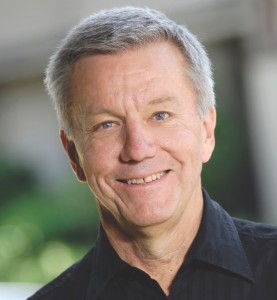by Robert K. Johnston
 Since the inception of PRODOLA in Latin America over a decade ago (see “The Latin American Doctoral Program in Theology”), my wife, Catherine Barsotti, and I have served with Chuck Van Engen on the support board for that program. Concurrently, I was also on the board of the William Carey Heritage Foundation, which was formed to help strengthen theological education in India. India is a complicated place for theological education, in that there are almost no schools that are state-accredited, and though there are ways to get a degree, often it is unrecognized by the state. Moreover, the majority of faculty at these Christian colleges and seminaries lack a doctoral education, never having had the means to study outside the country. Thus, several of us on the William Carey board wondered if we could address the need for more evangelical faculty with doctorates by contextualizing for India the PRODOLA curriculum.
Since the inception of PRODOLA in Latin America over a decade ago (see “The Latin American Doctoral Program in Theology”), my wife, Catherine Barsotti, and I have served with Chuck Van Engen on the support board for that program. Concurrently, I was also on the board of the William Carey Heritage Foundation, which was formed to help strengthen theological education in India. India is a complicated place for theological education, in that there are almost no schools that are state-accredited, and though there are ways to get a degree, often it is unrecognized by the state. Moreover, the majority of faculty at these Christian colleges and seminaries lack a doctoral education, never having had the means to study outside the country. Thus, several of us on the William Carey board wondered if we could address the need for more evangelical faculty with doctorates by contextualizing for India the PRODOLA curriculum.
Seeking an Indian university in which to locate such a program, I went with the Carey board chair to Sam Higginbottom Institute of Agriculture, Technology, and Sciences (SHIATS) in Allahabad. SHIATS was founded over a century ago by a Presbyterian missionary who developed a new technology to keep poor farmers from starving. One hundred years later, the school is a leading academic and research center, fully accredited by the government, with an international reputation and over 8,000 students and 400 professors. In the last twenty years, it has also blossomed into a more fully-orbed Christian university, so the season seemed right to propose a doctoral degree in Christian studies for its prestigious roster.
Accompanied by SHIATS board member and human rights activist Sunil Sardar, we met with Vice-Chancellor Dr. Rajendra B. Lal and several of his key staff to propose creating a Centre for Advanced Theological Study (CATS) at his school. The centre would be unique for India, including leading Christian scholars from both North and South India teaching at both evangelical and ecumenical schools, including both men and women, and offering a state-accredited doctoral degree at the highest level—one that would also seek to address the evils of the present Indian social structure. It took Vice-Chancellor Lal only a few minutes to seize the vision and assign us the task of gathering the best and brightest of Indian scholars from around the world to hone the vision and form his faculty. The vice-chancellor is a brilliant, hard-driving, charismatic Christian who has held weekly healing services for the poor on the university campus for some time. His commitments to Christ, to helping address the social injustices of his people, and to strengthen Christian education caused him to embrace the new idea.
I have joined fourteen distinguished faculty on the academic committee to design a program with concentrated courses in the first two years, tutorials with world-class scholars in the third year, and time for dissertation writing. This degree is offered at an India-appropriate tuition level to teachers and leaders throughout India who could not afford to study abroad, and who must continue their present employment while completing the five-year program.
Next year CATS will welcome its first cohort of twenty students, offering them exposure to an impressive roster of faculty, including five who are Fuller alumni and research scholars. This group brings innovation, educational rigor, Christian integrity, and a strong sense of mission to the new centre. The first students for CATS—most of whom are professors in Indian seminaries and Bible colleges—will arrive on campus in May of 2012 for intensive courses in Allahabad, one of the oldest cities in India. Situated at the confluence of the rivers Ganges, Yamuna, and the ancient Sarasvati River, Allahabad is one of four holy Hindu pilgrimage sites. I ask for your prayers for this new, strategic educational mission.
Robert K. Johnston joined the faculty of Fuller in 1993, serving as provost until 1995 and now serving as professor of theology and culture. He brought 20 years of teaching, ecclesial, and academic administrative experience, including 11 years as dean and provost at North Park College and Theological Seminary. He has published in a variety of fields, including selected Old Testament topics, evangelical theology, and theology and film.
This article was published in Theology, News & Notes, Fall 2011, “Where In the World Are We? Reflections on Fuller’s Expanding Global Reach.”
